Author's Purpose Teaching Resources
Help students understand the concept of author's purpose with printable worksheets, comprehension activities, and more teaching resources created by our teacher team just for elementary teachers.
This teaching resource collection includes curriculum-aligned activities and worksheets designed to help students when learning to identify if the author is trying to persuade, inform or entertain the reader. Editable resources are available so you can easily differentiate instruction for individual learners and your state standards.
Has it been a while since you taught ELA, or at least this particular part of the curriculum? We know a quarter of American teachers switch grades every year, and sometimes you could use a quick refresher.
What Is an Author's Purpose? A Kid-Friendly Definition
The author's purpose definition our ELA teachers use with students is simple: This is the writer's reason for writing the text. Understanding that reasoning will help students develop their reading comprehension skills and later help them better shape their own writing.
Here are five of the common author's purposes that we teach elementary students:
- To inform
- To persuade
- To explain
- To describe
- To entertain
How Do You Teach Author's Purpose?
Teaching author's purpose can involve a host of different strategies and activities, depending on your students' grade level and abilities. But here are a few tips from our tacher team to get you started!
- Modeling — Show students how to identify the author's purpose by analyzing a text together. Display a text and ask students to identify the author's purpose.
- Graphic Organizers — Use graphic organizers to help students identify and organize information about the author's purpose. For example, students can use a T-chart to list the main points of the text and then identify whether the purpose is to inform, persuade, or entertain.
- Class Discussion — Something as simple as leading a class discussion about different texts and their author's purpose can be an effective way to teach this core reading concept. Ask kids to share their opinions and understanding about the text.
- Writing Activities — Author's purpose may be core to reading instruction, but there's no reason you can't bring writing into the equation as a teacher! Prompt your class to write a text with a specific author's purpose in mind. For example, students can write an informative article with the purpose of informing!
- Role-Playing — Have students act out a scene or a skit where they take on the role of the author and present their text to the class. This will help them to understand better the purpose of their writing.
Helpful Examples of Author's Purpose to Share With Your Students
Looking for some good examples of author's purpose to present to your students? Try these!
One example of an author's purpose could be a news article that is written to inform the readers about a current event or a scientific study that is written to educate the readers about a specific topic. The author's purpose, in this case, is to inform.
Another example would be a novel written to entertain readers with a story or a poem written to express the author's feelings or personal experiences. In that case, the author's purpose would be to entertain or express themselves.
Another example would be a political speech that is given to persuade the audience to vote for a certain candidate. The author's purpose in this case is to persuade.
- Plus Plan
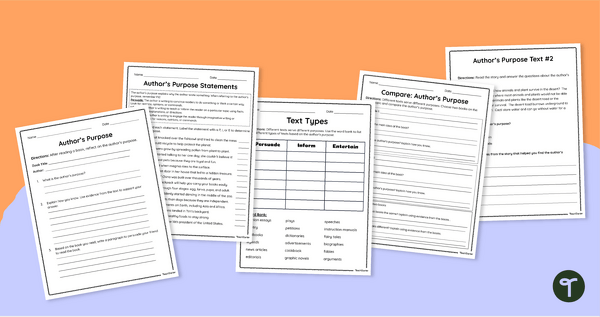
Author's Purpose Worksheet Set
Assess reading comprehension by using this comprehensive Author's Purpose Worksheet Set.
- Plus Plan
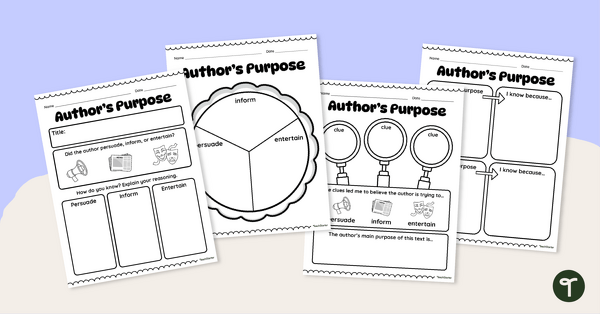
Author’s Purpose Graphic Organizer Pack
Explore the purpose of an author's writing with these Author's Purpose Graphic Organizers.
- Plus Plan
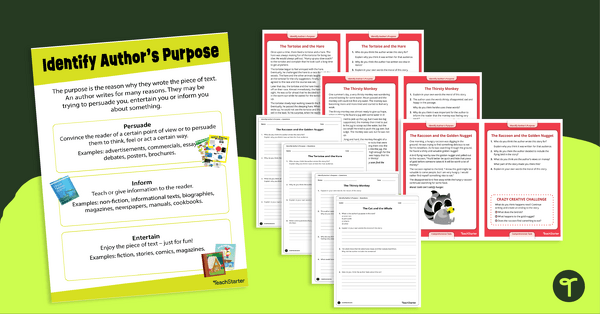
Comprehension Task Cards - Identifying Author's Purpose
Help students identify the author's purpose when reading with this set of comprehension task cards.
- Free Plan
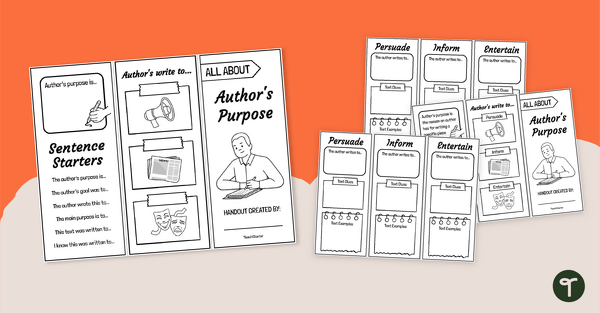
Free Author’s Purpose Handout
Use this Author’s Purpose Handout in the form of a brochure to explore the different reasons authors write.
- Plus Plan
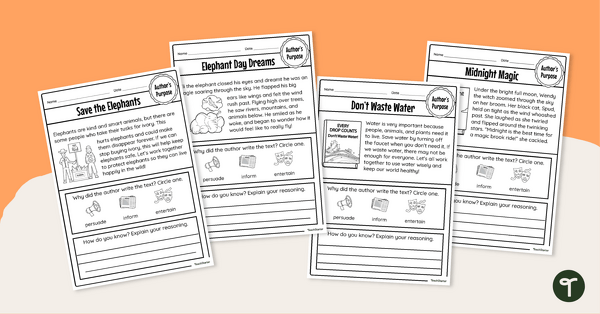
Author’s Purpose Reading Passages Worksheet Set
Explore the Author's Purpose in these reading passages with this set of Author's Purpose worksheets.
- Plus Plan
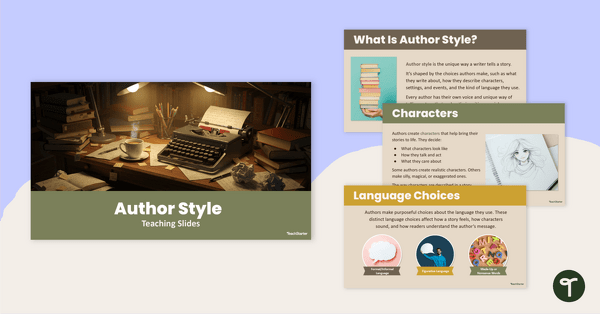
Author's Writing Style Teaching Slides
Teach your students about an author’s writing style with this engaging slide deck that helps students understand the elements that make up an author’s unique voice.
- Plus Plan
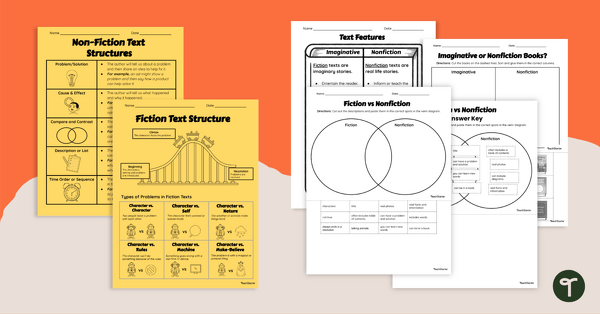
Compare and Contrast Text Structures Worksheets
Build students’ reading comprehension and critical thinking skills with this Compare and Contrast Texts Activity Pack.
- Plus Plan
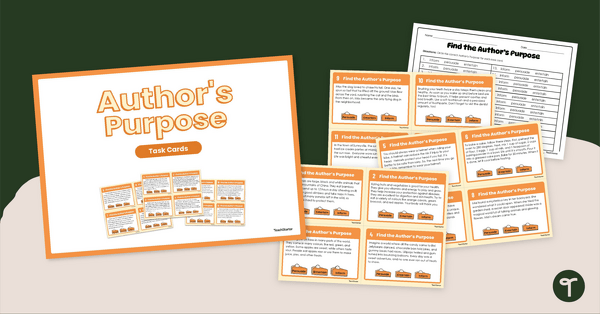
Author's Purpose Task Cards
Help your students master the skill of identifying the author’s purpose with this set of engaging Author’s Purpose task cards.
- Plus Plan
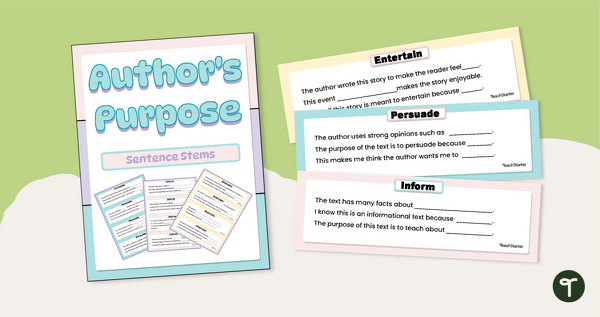
Author's Purpose Sentence Stem Flashcards
Assist students in identifying the author’s purpose with this set of Author’s Purpose Sentence Stem flashcards.
- Plus Plan
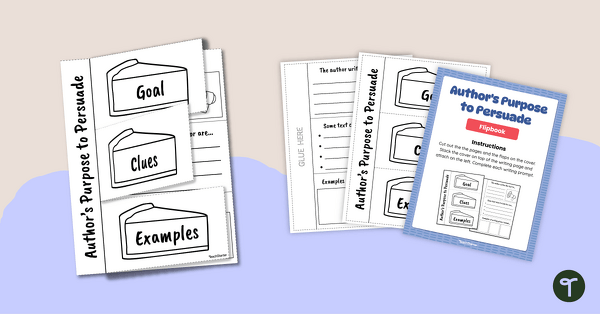
Author’s Purpose to Persuade Flipbook
Help students explore the Author’s Purpose to Persuade with this engaging and interactive flipbook.
- Plus Plan
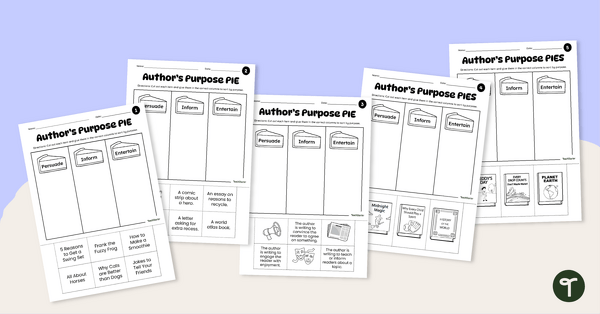
Author’s Purpose Pie Worksheet Set
Practice Author’s Purpose knowledge with this set of Author’s Purpose Worksheets.
- Plus Plan
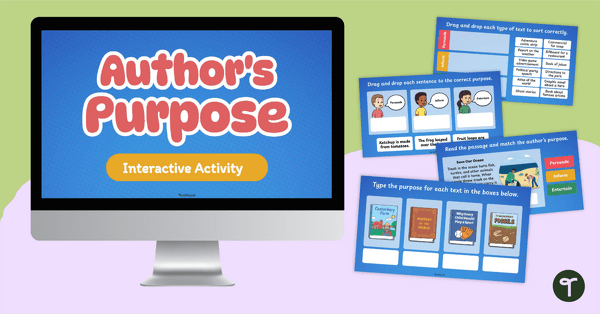
Author’s Purpose Activity - Digital Task Cards
Explore Author’s Purpose with this set of engaging and interactive Author’s Purpose Activity digital task cards.
- Plus Plan
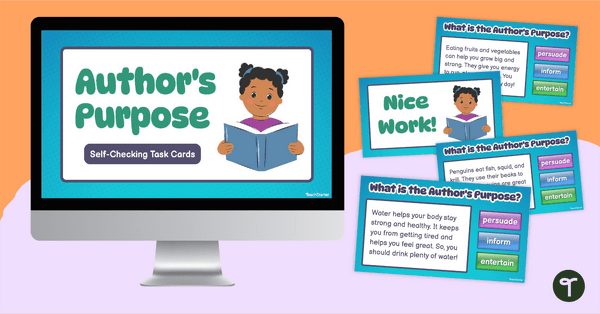
Author's Purpose Quiz – Self-Checking Task Cards
Engage students with their learning on author's purpose with this Author's Purpose Quiz.
- Plus Plan
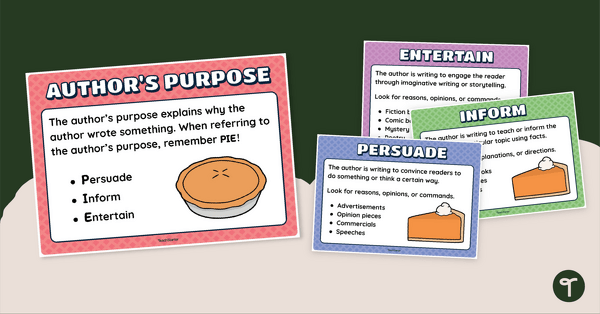
Author's Purpose Anchor Chart Set
Display this set of Author’s Purpose Pie posters to help students remember the various reasons authors write.
- Plus Plan
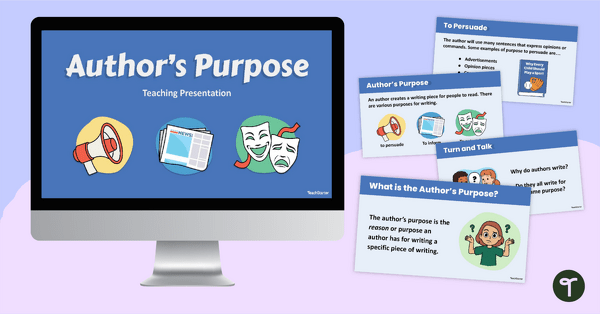
Author's Purpose PowerPoint
Use this Author's Purpose PowerPoint to teach your students how to identify the author’s purpose in a text.
- Plus Plan
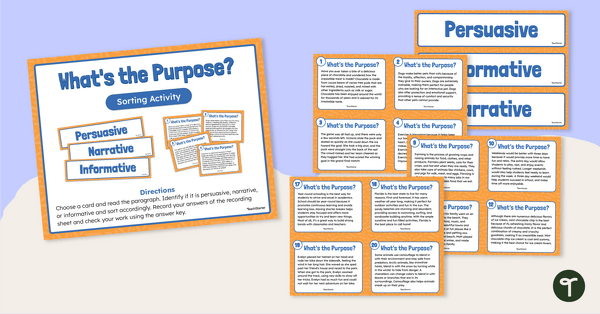
Author’s Purpose Sorting Activity
Use this author’s purpose sorting activity to teach your students the difference between persuasive, informative and narrative writing.
- Plus Plan

Style of an Author Inquiry Project
Explore the style of an author with this engaging classroom project that helps students analyse, understand and present what makes an author’s writing unique.
- Plus Plan
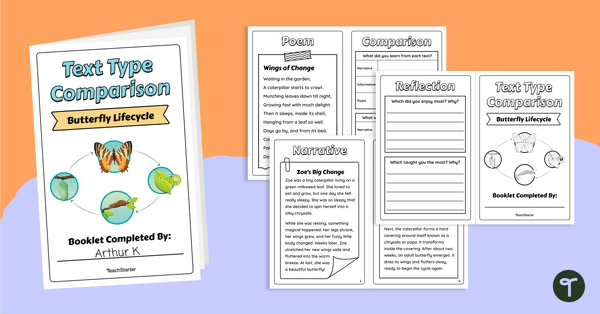
Different Types of Texts Booklet - Butterfly Lifecycle
Identify how similar topics and information can be presented in different types of texts with this Butterfly Lifecycle Text Comparison booklet.
- Plus Plan
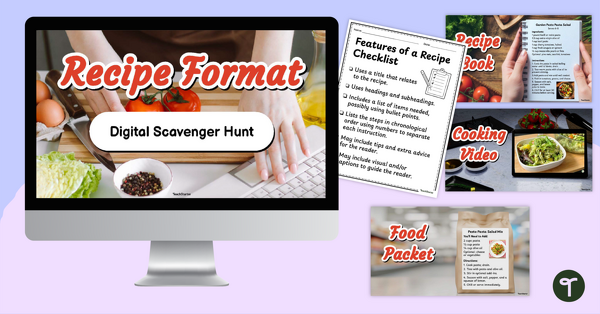
Recipe Text Features Scavenger Hunt
Explore recipe text features on a food packet, recipe book, short video clip and digital form and teach their shared purpose with this scavenger hunt.
- Plus Plan
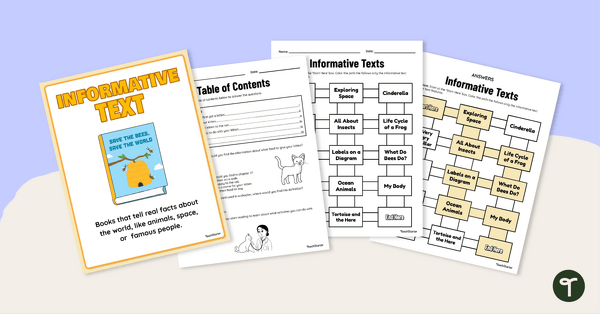
Purpose of Informational Texts Pack
Help students clearly understand the purpose of informational texts with this engaging and ready-to-use resource pack.
- Plus Plan
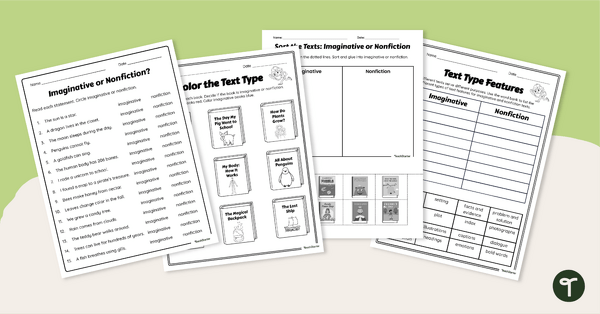
Purpose of Text Worksheets
Help students understand the purpose of a variety of texts using this set of Purpose of Texts Worksheets.
- Plus Plan
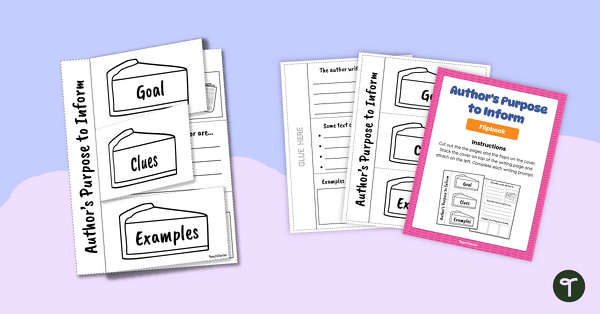
Author’s Purpose to Inform Flipbook
Help students explore the Author’s Purpose to Inform with this engaging and interactive flipbook!
- Plus Plan
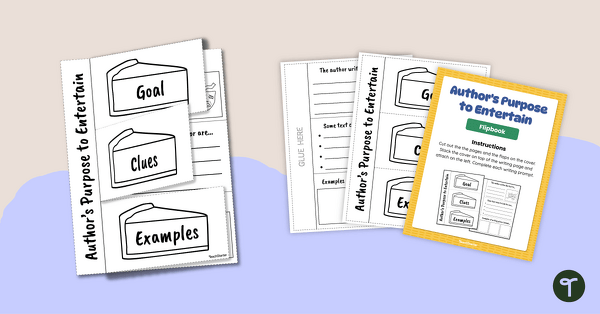
Author’s Purpose to Entertain Flipbook Template
Help students explore the Author’s Purpose to Entertain with this engaging and interactive flipbook.
- Plus Plan
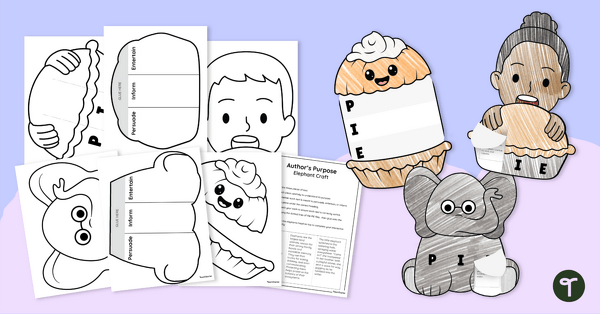
Authors Purpose Craft Template Bundle
Explore Author's Purpose with this fun and engaging set of Author's Purpose craft templates.
- Plus Plan
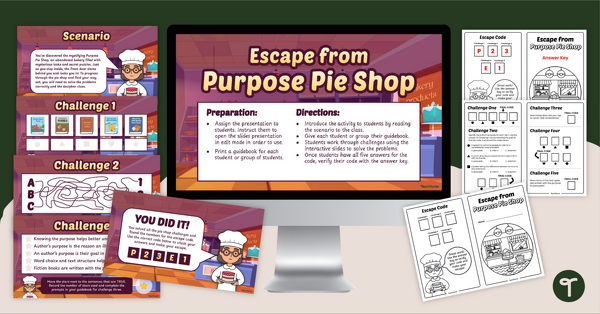
What is the Author's Purpose? Escape Room
Get your students excited to practice understanding what is the author’s purpose with this engaging escape room activity.
- Plus Plan
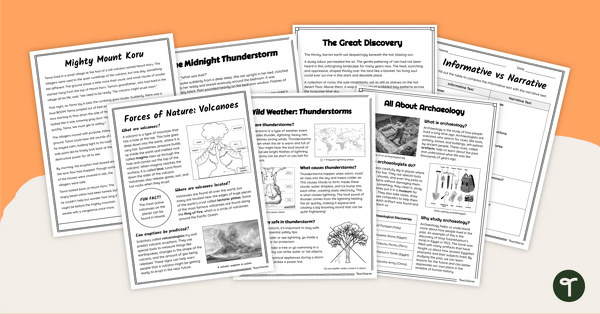
Comparing Narrative and Informational Text Worksheets
Use this set of comparing narrative and informational text worksheets to examine the purpose and features of these two common genres.
- Plus Plan
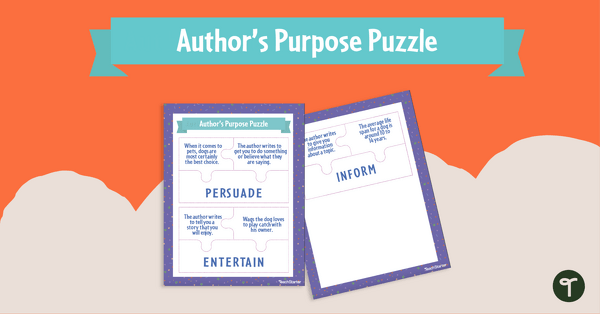
Author's Purpose - Puzzle Activity
A teaching resource to help teach your students about author’s purpose.
- Plus Plan
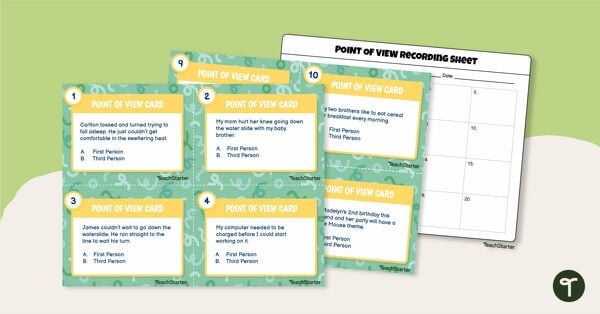
Point of View Task Cards - Beginner Set
Use these colorful, fun task cards to help your beginning reader identify first, and third-person point of view (POV)
- Plus Plan
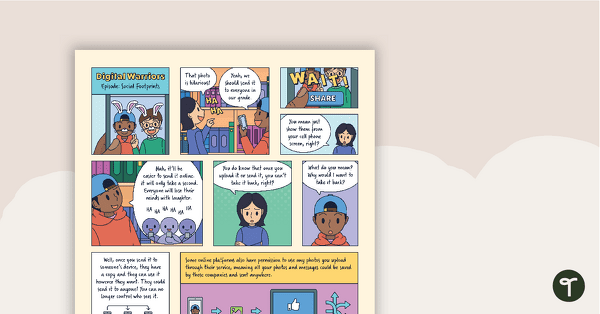
Digital Warriors: Social Footprints – Comprehension Worksheet
A comprehension worksheet paired with a comic about being safe when sharing photos on digital platforms.
- Free Plan
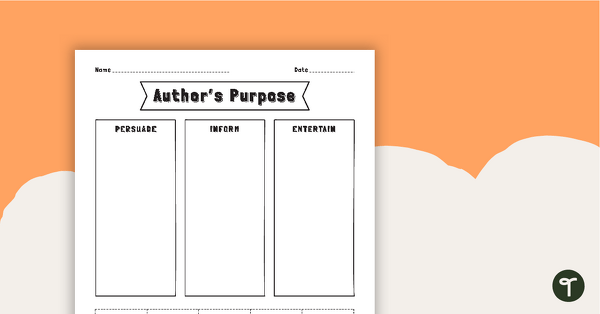
Author's Purpose - Sorting Worksheet
A teaching resource to help teach your students about author's purpose.
- Plus Plan
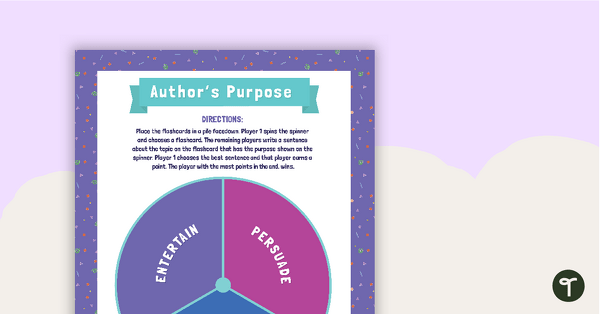
Author's Purpose - Sentence Writing Activity
A teaching resource to help teach your students about author's purpose.